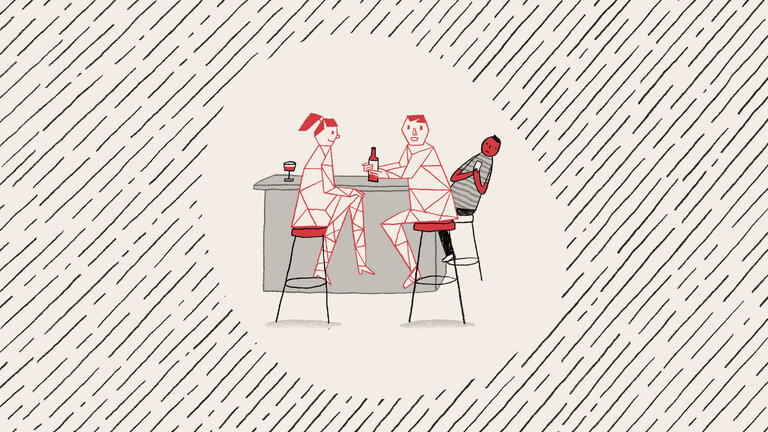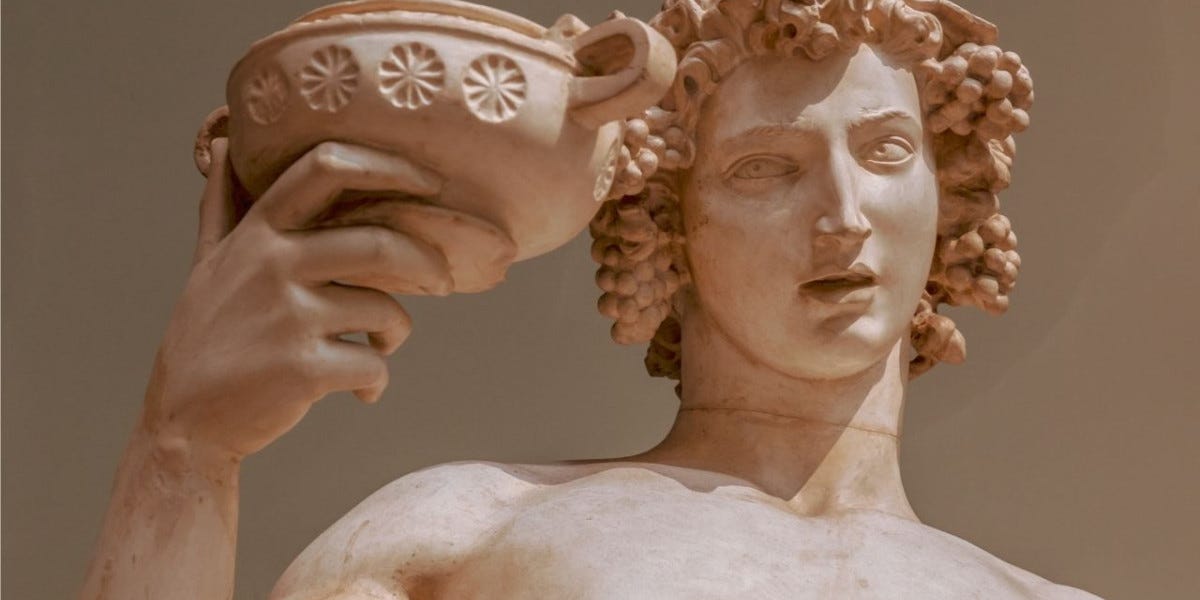Humanity has long been shaped by two distinct modes of being: the Logos-driven and the Eros-driven. These archetypal orientations define how individuals engage with the world, themselves, and each other. Logos people are primarily ego-based, seeking structure, order, and control, often manifesting in the Kronian mode, with its rigidity and fear of change, or in the healthier Apollonian form (in touch with the personal shadow), which values clarity and insight. Eros people, in contrast, are soul-based, guided by deep emotional honesty, intimate bonds, and a holistic approach to existence. Their essence is Dionysian, not in the sense of unchecked chaos, but in the pursuit of wholeness. So the full embrace of life’s fluid and interconnected nature.
Logos: The Realm of the Ego
Logos people build their identity through separation. They define themselves by intellect, achievements, and external validation. Their world is one of hierarchies, rules, and measurable success. They often view emotions as secondary to reason, prioritizing detachment and self-sufficiency over vulnerability and connection.
At its extreme, this mode becomes Kronian. This is a fear-based approach that resists change, suppresses emotions, and upholds rigid social structures. Kronian individuals fear the loss of control and therefore dismiss the Dionysian as irrational, dangerous, or even weak. Yet, in its balanced form, Logos becomes Apollonian, fostering insight, reason, and order without rejecting the depth of the human experience. With this Apollonian way of being, the Dionysian is nurtured, and protected. Which I call the Korybantic path. Which knows how to balance both sides Logos-based relationships are rooted in rationality, structure, and defined roles. These relationships often emphasize:
Clear boundaries and expectations – Interactions are guided by social conventions, logic, and duty rather than raw emotion.
Transactional nature – There is often an implicit understanding of give-and-take, where support and affection are conditional or exchanged based on practical value, and transaction.
Emotional restraint – Expressing emotions is often moderated, with an emphasis on maintaining composure and control.
Hierarchical structure – Relationships may follow traditional societal structures, such as mentor-student, superior-subordinate, or defined friendship dynamics.
Focus on achievement and status – Relationships often develop based on shared goals, career aspirations, or intellectual pursuits.
Eros: The Realm of the Soul
Eros people navigate life through connection and emotion. They seek authenticity, deep friendships, and emotional reciprocity. Their world is shaped by openness, shared vulnerability, and a commitment to experiencing life in its fullness. Where those people based on Logos construct walls, Eros builds bridges. These people do not fear the unknown but rather embrace it as part of the journey toward integration and truth.



Far from being chaotic, the Dionysian impulse is an innate drive toward wholeness. It dissolves artificial separations, unites the conscious and unconscious, and allows for a depth of emotional experience that Logos-oriented people often resist. Eros-driven people thus form friendships and communities where they can express and receive care without pretence or transactional expectations. Their relationships are then not defined by roles but by the genuine exchange of Self. They are the ones that are truly Self-aware, about the depths of their being. Their emotional inner truth. Eros-based relationships, by contrast, are centered around deep emotional bonds, intimacy, and soul-based connection. They are characterized by:
Unfiltered emotional honesty – Feelings are expressed openly and without shame, allowing for deep authenticity.
Interconnectedness and fluidity – Rather than adhering to rigid roles, relationships ebb and flow based on mutual care and shared experience.
Non-transactional support – There is a deep willingness to be there for one another, not out of obligation, but out of genuine love and understanding.
Spontaneity and intensity – The bond is often characterized by moments of profound emotional exchange, where crying together, offering comfort, or expressing love is natural.
Recognition of the whole person – Rather than seeing individuals as fulfilling a role or function, Eros-based relationships embrace the complexities, fullness, contradictions, and depths of a person’s being.
The Fear of Wholeness
Kronian people however, fear Eros because it threatens the illusion of control. As to embrace Eros is to acknowledge that life is not a set of rigid structures and rules but an unfolding, interconnected web of experiences. Yet true Dionysian wholeness does not mean chaos. It means acceptance of the full spectrum of being. This includes joy and sorrow, certainty and uncertainty, self and other, reason and feeling.
In a modern world dominated by Logos values, Eros people often find themselves misunderstood. Their depth of feeling, their prioritization of relationships, and their refusal to engage in purely transactional interactions can be seen as naïve or by some even impractical. Yet, in reality, this way of being is not weakness. It is the ability to hold space for the complexity of life without retreating into artificial structures of separation and control. Which takes immense courage.
Sadly many Eros people who grow up in the modern world dominated by Logos, are by Logos people scapegoated or treated as if something is wrong with being human, feeling deeply, and being beyond the binaries of Logos (intellect). Eros people need meaningful, emotionally rich relationships to truly thrive, as their nature is not built for surface-level interactions or transactional bonds. When deprived of this depth, they struggle with feelings of isolation, unworthiness, and alienation. Yet, when they find others who resonate with their essence, they create bonds of deep mutual support, authenticity, and transformation. Something Logos alone cannot offer. This is about connections that are based on soul to soul interaction. Or from a Jungian lens, we could call this a relationship from the Self to the Self, of the person.






